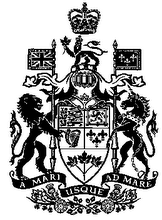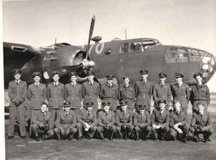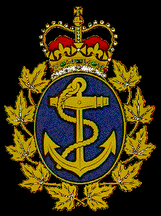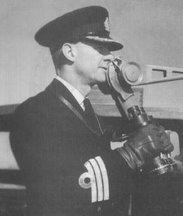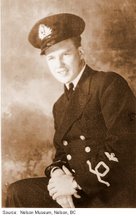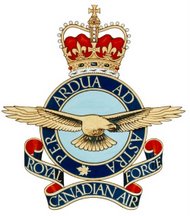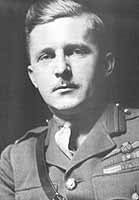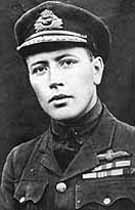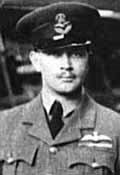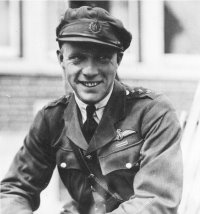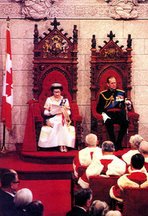A big round of thanks to Senator Rompkey for bringing his "Canadian Navy" motion to the Senate floor; no doubt the good Senator now regrets where this is going given the number of pro-RCN Senators that he obviously didn't bank on. Had it not been for him, our campaign would have been much more difficult to get the attention it deserves. Unfortunately for Senator Rompkey, the cat is out of the bag so to speak. Today's article in the Sun is proof that a very large number of citizen-sailors want the traditional name to be reinstated, contrary to the testimony of admirals who told the Senate committee there was little appetite for such a restoration. In any even, here is the absurd testimony given by Senator Rompkey on November 22nd (the transcripts don't become available until 2 weeks after the actual hearing, which is why we couldn't post it until today) in which he obviously thinks that the Royal designation is inconsistent with our identity as an independent country. Truly laughable to say the least, but here it is for your amusement.
THE STANDING SENATE COMMITTEE ON NATIONAL SECURITY AND DEFENCE
EVIDENCE
OTTAWA, Monday, November 22, 2010
The Standing Senate Committee on National Security and Defence met this day at 4 p.m. to examine and report on the national security and defence policies of Canada (topics: the role of Canada in NATO; and national threat assessments); and to consider a motion to change the official structural name of the Canadian navy.
Senator Pamela Wallin (Chair) in the chair.
[English]
The Chair: I call to order this meeting of the Standing Senate Committee on National Security and Defence on Canadian national security and defence policies, including Canada's NATO role, the national threat assessment, and a look at changing the official structural name of the Canadian navy. We will not be dealing with Item 4 on today’s agenda; that is Senator Rompkey's motion in the Senate.
The committee has been studying a motion by Senator Bill Rompkey that asks the Minister of Defence to change the official structural name of Maritime Command to “Canadian Navy.” In conducting this study, some committee members have also suggested that Maritime Command revert to an earlier name, the Royal Canadian Navy.
[...]
We will continue our discussion about the name of the Maritime Command, or the navy, as it is commonly known, with our final witness today, Senator Bill Rompkey.
Senator Rompkey is the author of this motion which asks the Minister of Defence to change the official structural name of Maritime Command to “Canadian Navy.” He will be our final witness today, but probably not our last in this series.
Welcome, Senator Rompkey. We are very pleased to have a colleague sitting in that chair.
Would you like to make some opening remarks?
Hon. William Rompkey, Senator: Yes, I would. However, I would first like to thank you very much for the expeditious way in which you are dealing with this matter because I and others are hoping that we can deal with it before the end of the naval centennial year.
You all have before you exhibit a and exhibit b, as Perry Mason would have described them, naval centennial pins and naval centennial promotional materials that clearly say they are on behalf of the “Canadian Navy.”
I introduce, as exhibit c, this copy of Canadian Naval Review of spring 2010, which has as its title Canadian Navy Centennial Issue.
I show you that to make a point of what is real at the present time.
I am a Canadian. I was not born a Canadian; I was born a British subject. I was 13 when my country joined with this country. I was 17 when I joined the Canadian navy. It was the Royal Canadian Navy Reserve that made me a Canadian, ironically enough, because it introduced me to Canadians across this country that I had never met before. I spend some time in Halifax and I spent some time in Esquimalt, and I met Canadians from all across the country. I am a Canadian, as the Anglican baptism service says, “by adoption and grace,” and by choice, so I start with that proposition.
However, I am here on behalf of those who have served in the navy since 1968, and they have not served in the Royal Canadian Navy; they have served in what they call the “Canadian Navy.” Their navy is the “Canadian Navy” and it is those that I think we should keep in mind.
I moved the motion on behalf of those who did not serve because I think we need to look forward. I do not think we, in this centennial year, should be looking backward. I think we have to look forward. We have to acknowledge what is in the present and what is going to be.
I would like to read, if I may, briefly, several paragraphs from the speech I made in the house because I do not want to miss any important points.
The view of moving forward and not backward was anticipated by Lieutenant-Commander Alan Easton in his excellent account of his World War II sea service in his book 50 North. He recalls a wartime conversation with a senior RN officer:
We went on to speak of tradition. He said that in the RN tradition was a heritage of which they were very proud, and in a sense was the moral backbone of the service. “You are not far removed from it yourselves, you know. You are part of the Empire and much of our stock is British.
I am not sure he knew the French were here beforehand, but a portion of our stock is British.
He continued:
That's so, sir, I acknowledged. But, although we learned your customs and in fact were patterned after the Royal Navy, I feel, and I think most of us feel, that we have no direct right to your traditions. Nor, could they apply really, because, what made them occurred mainly before we were in existence.
Our tradition, I suggested, is possibly being made now.
That point of view, I believe, would be shared by the majority of those serving in the navy today and by many who have retired. For half of the hundred years that the navy has existed, those who enlisted did not serve in the RCN. The RCN disappeared with a wave of Paul Hellyer's wand. Unification was seen as an insult to the many who had served in the RCN because it instantly and arbitrarily took away symbols and traditions that were part of their long and distinguished legacy of service. Surely, bringing back the designation RCN today would be doing the same thing to those who have served over the past 42 years. What of the innovations that are truly Canadian? Now women serve and command at sea; now we have bilingual warships; now we have a diversity of people from many ethnic and racial backgrounds reflecting the unique mix that is Canada itself. These are traditions that are in part handed down and are in part earned by Canadian sailors who never served in the RCN but who proudly served in what is commonly known as the Canadian navy. Like those who suffered from unification they should not have their accomplishments cast aside.
The men and women of today's navy know that for some time they have been working more and more closely with the USN whose continent we share. Indeed, they interface more and more with foreign navies who identify them as the Canadian Navy. Francophones have been in what is now Canada longer than any, except for the First Nations and Inuit. Francophones do not use “Maritime Command” when identifying the navy. For them, the French word for navy is “La Marine.” Navy/marine is a term that has survived 42 years of official, political and statutory deletion.
Vice-Admiral Dean McFadden has pointed out how closely the story of the navy parallels the development of Canada. Both came from humble beginnings but aspired to contribute beyond the shores of the country. Both modelled themselves on remarkable institutions of Great Britain. Both came of age in the crucible of war. He could have added that just as Canada has emerged from the shadow of Britain to tread the world stage as a respected and able nation in its own right, so did the Canadian Navy emerge from the shadow of the RN to become a world-renowned navy in its own right. It has become a navy reflecting the diversity, creativity, competence and multi-culturalism of the country itself.
This chamber is not the Royal Canadian Senate, although we owe much to British origins; we are the Senate of Canada. We are Canadians with our own constitution and identity. So it is with the Canadian Navy, with its own insignia, customs, practices and history.
The connection with the sovereign is acknowledged through the presentation of the Queen's Colours, which recently occurred for the third time in Halifax. Additionally, the use of HMCS is a practice well accepted by today's sailors.
The face of young Canada is rapidly changing. The demographic is no longer one of British, or even European, ancestry. The talent pool for the future navy has no connection with the royal designation. As the population ages, the navy is in an almost life and death competition with every other industry. If the navy does not attract more Aboriginals, more francophones, more of the anglophone and francophone immigrant communities and visible minorities, it will die a slow death.
Maritime Command is a bland nonentity. . . . The time has come to institutionalize the name “Canadian Navy/La Marine Canadienne.”
Finally, I know there was a lot of discussion about what other countries do and the fact that other countries have kept the term “Royal.” Last week I was in British Columbia studying lighthouses with Senator MacDonald, and the same case was put to us, that many countries had done away with lightkeepers. Our research shows that is not entirely true, but that is the allegation. Senator MacDonald made the comment that when he was young and he told his father he wanted to do something that his father thought he should not do his father would say to him, “If everyone else jumped over the wharf, would you jump over too?”
We are a country in our own right, with our own traditions and heritage. Thank you, Madam Chair, for hearing me.
The Chair: Thank you very much for appearing before us today. We have a long list of questions all ready to go, so we will start with Senator Dallaire.
Senator Dallaire: Senator Rompkey, I believe it was 1986 when the government of the day invested something like $43 million to put the three services back into service dress. Do you remember that time frame? Are you familiar with the time they did that? Did you perceive that there was a sense of pride that was created by the return to three separate uniforms?
Senator Rompkey: Absolutely.
Senator Dallaire: At that time, the navy did not go back to the navy blue; it went back to black. Also at that time, the army did not go back to khaki; it kept the green and the air force got its blue pretty well back. Do you think that because they did not get exactly what they had before, that maybe was a pejorative side to the encouragement of having your separate uniform?
Senator Rompkey: The uniform that I remember was black. The uniform that I wore was black, so they have gone back to black. If I recall uniforms, senator, it was not navy blue but black. I stand to be corrected. I think they have gone back to what it was, but it clearly is a morale booster and a question of identity.
Senator Dallaire: I can certainly speak for the army. However, do you believe the new uniforms to be a significant factor in the continued operational effectiveness of these forces? Do you believe that by introducing this new element you can boost the morale of the forces?
Senator Rompkey: I do not mean to be trite, but I was thinking tonight that the Montreal Canadiens used to be called the Montreal Maroons. If you asked the people of Montreal to go back to the Montreal Maroons and if you took that CH off the sweater of the Canadians, what would that do to morale? What would that do to the morale of the team and the people? Morale is very important.
Senator Day: I thought they were called “les habitants.”
Senator Rompkey: Morale is important and those symbols of morale are very important.
Senator Dallaire: Is it not a fact that members of the naval branch, the Maritime Command, throughout the terrible years of unification and destruction of the soul of the army, navy and air force by trying to unify it, still kept the term “navy” in all kinds of paraphernalia. Is it true that they kept all kind of expressions of their morale and their entity?
Senator Rompkey: Yes, and that is why I distributed the materials tonight.
[Translation]
Senator Pépin: You told us to look ahead. I really want to look ahead, but for the Canadians who served in the Royal Canadian Navy, it is a question of identity. This change in name will affect them, and I suggest we give them a special decoration. Perhaps we could have some kind of recognition process for them. These soldiers are between 85 and 90 years old; there are very few of them left. One of my uncles is in this situation. It seems to me that they could be given a pin of recognition, for example, and then we could open the door and change the name to the Canadian Navy.
[English]
Senator Rompkey: To my knowledge, there is no one serving today who was in the Second World War. Those veterans of the Second World War still wear their RCN uniforms. Whenever they go to a mess dinner, to a Naval Officers' Association, they will wear their RCN uniform; but there is nobody from the RCN serving today.
Senator Pépin: That I know.
Senator Rompkey: The other thing I wanted to say was there are some from the Second World War in the Naval Officers' Association of Canada. However, as you know from the testimony of Admiral Summers, the Naval Officers' Association has taken the position that the navy should be called the “Canadian Navy,” even though some of their members have experience in the Second World War. The same is true for the Royal Canadian Legion. They took a decision not to revert to RCN.
[Translation]
Senator Pépin: I agree with the name Canadian Navy, but out of respect for the oldest veterans of the Royal Canadian Navy, we could find a way to recognize them as such, and then open the door to the rest.
[English]
Senator Rompkey: They will always be veterans of the RCN.
Senator Manning: I would like to thank our guest for being here with us today. To think he was on the short list for the next lieutenant governor of Newfoundland, but anyway.
I certainly have been intrigued by your motion in the house. We have had several discussions in private and I am delighted that you are here today. As you know, my feeling is we should go back to the “Royal Canadian Navy.” I hope I am not looking backward, but I am looking at honouring the accomplishments of the navy over the past 100 years.
I do not think there is a right or a wrong to this issue. You quoted Senator MacDonald's comments. My father used to tell us, even if you are on the side of the road by yourself and everybody else is on the other side, it does not mean you are wrong; it means you are lonely. I guess we all learn from our fathers and mothers.
Coming from Newfoundland and Labrador, and wherever we are in Canada, valuing our ancestry is important because while valuing and remembering our past as we prepare for the future and embracing our identity.
I guess my biggest issue, and what I want to get you on record as stating, is that when the changes were made with unification in 1968, it was a blow to the morale of all the forces at the time — the change in uniform, the elimination of the executive curl to the navy especially.
If we get to a point where it is “Canadian Navy,” I am okay with that, while I still push the fact that it is “Royal.” I do not push “Royal” for the simple reason of our history with the monarchy, as I said to witnesses and I said to you. My ancestry is Irish, so it is not necessarily from the monarchy point of view as much as I see it as a distinction — a clear distinction and an honour. I point to institutions like the Royal Canadian Mounted Police, the Royal Newfoundland Constabulary and the Royal St. John's Regatta, the oldest sporting event in North America.
I am sure you have talked to many people, veterans of yesterday and the soldiers of today. I just wonder what you think at the end of the day.
I certainly want to take it from “Maritime Command.” I want to see that abolished because, to be honest with you; I think if you asked 10 out of 10 people on most days, you would not get an answer on “Maritime Command.” Most people would not know it. We know our army, navy and air force. We know the great work they have done.
From your point of view and all the people you have talked to, can you give us some indication? If we choose one or the other, I know life will continue on, as one of our witnesses said — soldiers do what they are asked to do.
Senator Rompkey: Life will continue on. You would have to make some changes. Those pins would no longer read “Canadian Navy.” The bumper stickers would no longer read “Canadian Navy.” The website would no longer read “Canadian Navy.” The letterhead would no longer read “Canadian Navy.”
You would have to make many changes and they would be costly. They would not be exorbitant, but they would be costly. There is a dollar figure attached to going back to “Royal Canadian Navy” which we should not discount. However, that is not what you asked and you asked a very important question.
Rear-Admiral Fred Mifflin's testimony was instructive in that regard. He said he had not met anybody in his travels who wanted to go back to “Royal Canadian Navy.” Fred moves in navy circles more than I do today.
I encourage you to go on a navy ship, those of you who have not, and actually talk to the people who live on that ship. I had the pleasure of sailing from Cupids to St. John's about three or four weeks ago. A lot of people on that ship, HMCS St. John's, are from my province. I did my own little informal survey on the quarter deck. I must say that people on that ship serve in the Canadian navy and are very proud of it. They really have no knowledge of the Royal Canadian Navy. It is not part of their identity, who they are or who they work for.
I have not done an exhaustive survey and I am not aware of any polls. However, I have asked people about it over the past year or more, and my conclusion is that the majority would rather serve in the “Canadian Navy.”
Senator Manning: You are almost there.
Senator Day: He has it. It is in his soul, I know it.
Senator Manning: In terms of logistics, Maritime Command is currently the official name. Therefore, the official name is not “Canadian Navy” at this present time. Is that correct?
Senator Rompkey: Right.
Senator Manning: Therefore, the soldiers and people who are serving in the Maritime Command today have never served under the Royal Canadian Navy or the “Canadian Navy.”
Senator Rompkey: They call themselves the “Canadian Navy.” That is how they are known and identify themselves.
Senator Manning: I know that.
Senator Rompkey: Officially, that is right.
Senator Manning: Officially, it has never been called that. They have found a way back to “Canadian Navy” from Maritime Command as an opportunity to identify themselves.
You kind of answered part of my second question. You are not aware of any polls among the people who are serving today, are you?
Senator Rompkey: I am only aware of informal polls. It is only anecdotal evidence; there is no hard evidence.
Senator Manning: The argument you are putting forward is clearly an argument that, for the past 42 years, these men and women have not served in the Royal Canadian Navy and, therefore, do not identify with that term. That is basically your argument.
Senator Rompkey: Right.
Senator Manning: Before you went out and discussed this over the past several months, you served in the Royal Canadian Navy, as I understand it.
Senator Rompkey: In the reserves, yes.
Senator Manning: In the Royal Canadian Navy Reserves. Were you convinced to change your mind or were you always —
Senator Rompkey: No, I was convinced to change my mind.
Senator Manning: You were convinced to change your mind from the conversations that you have had, is that right?
Senator Rompkey: That is exactly right, and I think it is a good point: I was convinced by those I talked to.
Senator Day: Thank you. Senator Rompkey, it is great to have a fellow senator here before us. I am taking a position contrary to yours. I just want you to know that so you do not feel that I am ambushing you.
Senator Rompkey: It is a democracy. One of the beauties about Canada is that is a democracy and the second is that it has a Canadian navy.
Senator Day: It does not, which is the point. That is why we are here. It has a Maritime Command. You and I know that, but you keep calling it the “Canadian navy.”
Senator Rompkey: No, they call it the “Canadian navy.”
Senator Day: This is a centennial document. This would have been approved. The one hundredth anniversary was celebrated this year, and it commemorates the Maritime Command. The commanding officer, presumably the Chief of the Navy, must have approved these celebrations.
Senator Rompkey: Right.
Senator Day: Do you agree with us that the “Canadian navy” is not an official name? “Canadian navy” is not the name, yet we see documents like this produced by the navy using an unofficial name.
Senator Rompkey: Good for them.
Senator Day: Therefore, if we change the name to the “Royal Canadian Navy” there is absolutely no reason why they could not continue to use the same documentation and call it the “navy.”
Senator Rompkey: If you change it to the “Royal Canadian Navy,” you would have to redo all that.
Senator Day: Why? They are using it now when it is called Maritime Command and they are using “Canadian navy.” If we change it to the Royal Canadian Navy, they could still use this stuff.
Senator Rompkey: However, “Royal Canadian Navy” would be official.
Senator Day: You do not think “Maritime Command” is official.
Senator Rompkey: It is official. That is my problem.
Senator Day: That is my point. It is official, yet this is being used.
Senator Rompkey: Yes, it is.
Senator Day: You agree, then.
Senator Rompkey: I think Senator Segal brought up the issue of covert activity.
Senator Day: Second, have you talked to the senior naval command with respect to this change?
Senator Rompkey: Yes.
Senator Day: We have been told that Maritime Command commanding officers have passed the word down through that there are bigger fish to fry.
Senator Rompkey: That is true.
Senator Day: So you agree with that.
Senator Rompkey: I agree with that. You need ships more than a name change.
Senator Day: It is not likely in a military command structure where the top boss says, “Cool it on this issue” that you will hear any comments from anybody else.
Senator Rompkey: I am not sure he said, “Cool it.” He just said he had bigger fish to fry. He did not say, “cool it.”
The Chair: We will be taking testimony, just for the record. He will be coming.
Senator Rompkey: Okay.
Senator Day: That is my terminology, but “let it lay” instead of “cool it.” Would “let it lay” be more appropriate?
The Chair: He did not say that.
Senator Rompkey: They could have done the same with the executive curl.
Senator Day: Yes, they could have.
Senator Rompkey: It is in the same general category. It is not in the category with ships, weapons and recruitment. It is not in that category, but it is in the category with the executive curl and it is relatively easy to do. The curl really did not cost very much.
Senator Day: However, as I understand it the executive curl was not an initiative by Maritime Command. It was a political initiative.
The Chair: No.
Senator Day: But it was not an initiative by the Maritime Command commanders.
Senator Rompkey: The chair is shaking her head.
The Chair: I do not think that is the order in which it came. That was very much coming up from the —
Senator Day: The command did not ask for it.
Senator Rompkey: Well, whatever.
The Chair: We will ask him when he comes.
Senator Day: We will ask him when he comes.
Senator Rompkey: They like it. They agree with it.
Senator Day: We know they liked it, once they were given it.
Senator Rompkey: The point here is that this can be done fairly easily with the stroke of the minister's pen. That is what I would like us to ask the minister to do because it is relatively easy and relatively inexpensive.
Senator Day: I just have one other point that I would like you to clarify with respect to recruiting. In the words from the speech that you gave in the Senate and which you talked about here, you mentioned recruiting and how important it is to recruit from a broad sector of the public nowadays and how we have a multicultural society. Are you suggesting, therefore, that HMCS Winnipeg, HMCS Victoria and HMCS St. John’s are making it difficult to recruit?
Senator Rompkey: No.
Senator Day: Why were you talking about recruiting in light of changing the name to —
Senator Rompkey: That is the name they use in recruiting now; the name they use in recruiting is the “Canadian navy.” If you watch the TV ads, and they are wonderful, they are on behalf of the “Canadian Navy.” Some of them say, “Fight with the Canadian Forces,” but some of them say, “Fight with the Canadian Navy.”
Senator Day: Therefore, your point is that the wording is used to help with recruiting.
Senator Rompkey: Right.
Senator Day: However, if they said fight with the “Maritime Command” —
Senator Rompkey: Oh, absolutely.
Senator Day: We all agree that “Maritime Command” should go.
Senator Rompkey: Right.
Senator Day: You are telling us that the title “Maritime Command” has already gone; in effect and unofficially, Maritime Command is not being used.
Senator Rompkey: It is not being used, but it is not gone.
Senator Day: No, unofficially is what I am talking about.
Senator Rompkey: Unofficially “Maritime Command” is not used in promotion, as I understand it, and you have evidence in front of you.
Senator Day: Yes.
Senator Rompkey: It is on behalf of the “Canadian Navy.”
Senator Dallaire: This argument on recruitment is perhaps a little simplistic. What do you think the introduction of “Royal” will do to recruiting in the Province of Quebec and to the million other Franco-Canadians in this country?
Senator Day: Yes, I think it is important to face that question.
Senator Rompkey: You may be able to answer that question, senator, more easily than I can because you come from that province and I do not.
Senator Manning: Answer your own question. I am interested.
The Chair: No, we will have other testimony on this.
Senator Day: What does it do to Royal 22e Régiment?
Senator Dallaire: It was first an Infantry battalion called the 22e Régiment and asked to become “Royal” in 1926, and the Queen asserted that, and that was fine. However, we are now in 2010. To seek Royal Assent for, let us say, the “Canadian Navy” would be a different exercise. In addition, I remind you that none of the new units created since 1968 has the term “Royal,” and there is a reason for that. There was no demand for that term to come back within any of the new units created in the Canadian Armed Forces.
The Chair: Thank you.
Senator Mitchell: I have nothing to add to the excellent case that you made. I could not augment it; I could not improve on it.
Senator Rompkey: Actually, I was going to say the same about the remarks you made before I got here.
Senator Mitchell: I will repeat those, thanks.
To use Senator Manning's analogy, I do not want you to feel that you are alone on that side of the street because you are not. You made an excellent case. I will ask some questions that might seem to be leading, but justifiably so.
I have a feeling that “Royal” conjures up an era of a shroud of colonialism that covered Canada that does not reflect the present era. In this era, we can have true pride as an independent nation in the world. That independence was very hard fought for by all of our services and certainly by the naval services of Canada in our history.
Senator Rompkey: There was a revolt in the navy just after the war. A review was commissioned, headed by Admiral Mainguy, who was captain of destroyers in St. John's during the war. The Mainguy report identified exactly that, namely that there were certain practices, insignia and customs that the Royal Canadian Navy at that time wanted but which were denied because many of the officers in the Royal Canadian Navy had come from Britain, and those who had not had a mid-Atlantic accent, if you know what I mean.
There was a movement, and the Minogue report helped to change that and to institute Canadian practices and Canadian customs. They started growing from about 1950 onwards and have continued.
Senator Mitchell: I would like to address the precedent that some of our colleagues are trying to draw between “going back to the curl” and therefore legitimizing going back to “Royal.” You see, I do not buy that precedent. I think there is another precedent. Resurrecting the curl is necessary to distinguish a service. Resurrecting a name without “Royal,” simply the name “Canadian Navy,” is distinguishing a country, a country that deserves to be distinguished internationally as a country of independence, as a country of a new era of a future where it is not beholden to other nations and their monikers.
Senator Rompkey: That is exactly right. The executive curl, if you remember the testimony from Admiral Mifflin and Admiral Summers, and so on, was to distinguish them from airline pilots and commissionaires, although Admiral Fred Mifflin said he would be happy to be identified as a commissionaire because many of them come from the Armed Forces.
You are right. The curl is to identify you as being part of the international navy community. That is what it says. “Canadian navy” says you are representing a nation.
Senator Mitchell: Exactly. I guess as a final comment, in my heart of hearts, I cannot see how “Royal” in front of “Canadian Navy” can in any way, shape or form augment, enhance, inspire greater pride than simply “Canadian” all by itself. Why do we need a crutch?
The Chair: Do you have any sense of what this means for the other two services?
Senator Rompkey: No, not really, although we have never had the “Royal Canadian Army.” We have always had the Canadian army. You raise a good point, namely that there has never been a “Royal Canadian army.” There has only been a Canadian army. In a sense, going to the “Canadian Navy” is simply as a reflection of the Canadian army.
What the air force will want to do, I have no idea.
The Chair: Senator Plett wanted to give testimony as well today.
Senator Plett: Chair, I was the shortest one last round, and I will be again.
The Chair: You were.
Senator Plett: First, I find it exciting that I am on the same side of an issue as Senator Day, and I realize that all is right in the world because I am not on the same side as Senator Mitchell. The problem, of course, with being on the same side as Senator Day is that he somewhat asked the questions that I was going to ask, but I do want to continue on that just a bit.
Senator Rompkey, a number of times you referred to the fact about going back to the RCN would be a slap in the face of the soldiers that are serving —
Senator Rompkey: I am not sure I used “slap in the face.”
Senator Plett: No, that is correct. You did not use those terms. Absolutely you did not, but you implied — and I am not sure whether it was insult — that it would not be what they would want.
Senator Rompkey: Yes.
Senator Plett: As Senator Day and Senator Manning have said, we do not have a Canadian navy; we have Maritime Command. They are printing things at someone's command, but certainly not because it is official.
When this name is changed, and I have every reason to know that it will be, either to “Royal Canadian Navy” or to “Canadian Navy,” I want you to know, sir, that I will not only put this on to either a bumper or somewhere, if it is “Canadian Navy” I will put it on it proudly. I am equally sure that our fine men and women in uniform, in the navy, will be proud to serve in the “Royal Canadian Navy” if that is the name. I do not accept the fact that they will say that something has happened to belittle their stature.
Yes, we served at Vimy Ridge as the Canadian army, and wonderful on us. I support that wholeheartedly, and I am so proud. If we have the name “Royal Canadian Navy,” everyone will understand that we are the Canadian navy. We are the “Royal Canadian Navy” in Canada. Those are religious comments.
There was apparently a survey done at the Naval Officers Training Centre that revealed that 80 per cent of junior-serving officers were in favour of returning to “Royal Canadian Navy.”
Senator Rompkey: Can you table that survey?
The Chair: Yes, before we put that into testimony, we need to have some facts.
Senator Plett: Fair enough.
Senator Rompkey: Can you table it?
Senator Plett: In all fairness, a number of people have used unsubstantiated comments about what their polling has revealed. I am not sure that we need to table it. These are unsubstantiated, and I am simply reading a question to the senator as to whether or not he is aware of such a survey.
Senator Rompkey: No, I think I said in an earlier answer very clearly that there is only anecdotal evidence. There has been no poll to my knowledge and there is no hard evidence. I said quite clearly, I think, that I spoke to people on the upper deck and on the lower deck, and my conclusion was that they served in the “Canadian navy” and would rather do that.
However, there is no hard evidence. If you have some, I would be glad to see it.
Senator Plett: Thank you. I have already taken you up on your suggestion about getting on to one of our fine vessels. It is in the works.
Senator Rompkey: If you get on to HMCS St. John's, she will get you to the port that has more bars per capita than any other city in Canada.
Senator Plett: Wonderful. That is also a plus.
The Chair: Committee, our time is up. This better be five seconds.
Senator Day: There have been a number of suggestions of surveys and doing things. I am hoping that this committee can take the time to do those surveys, go on the ships and find out for ourselves before we vote on this.
The Chair: I think that would be informal. That would be more anecdotal evidence. We do not have the capacity to do an actual poll.
Senator Day: The witness has suggested that this is something we may want to do. I agree that we should do so before we vote on the motion.
The Chair: I will take that under advisement.
Senator Dallaire: I would totally disagree inasmuch as we have seen what the navy thinks. We have seen what it thinks because it has related 100 years of history and it has called it the “Canadian Navy.” I think the chain of command should be held in front of this committee to give us what it thinks it sees the future of the navy and, ultimately, it will be held accountable for whatever answer it gives and not a poll from the forces
The Chair: Which we will do three weeks from today. Senator Rompkey, thank you very much for being here. The meeting is adjourned.
(The committee adjourned.)
 Born in Brantford, Ontario, in 1916, the only son of Dr. Frederick and Gladys (Moss) Landymore, Bill Landymore enrolled in the Royal Military College of Canada in 1934. The College motto, ”Truth, Duty, Valour,” was to be the inspiration for his 32-year military career. Landymore entered the RCN in 1936 as a midshipman, and saw service in Palestine, World War II and Korea. He served with distinction in 13 RN & RCN ships, as well as training the gunnery crews of seven allied ships at Scapa Flow in 1943. In WWII, he survived the sinking of HMCS Fraser and HMCS Margaree, and was awarded a Mention-In-Dispatches (MID) on the Murmansk Convoys.
Born in Brantford, Ontario, in 1916, the only son of Dr. Frederick and Gladys (Moss) Landymore, Bill Landymore enrolled in the Royal Military College of Canada in 1934. The College motto, ”Truth, Duty, Valour,” was to be the inspiration for his 32-year military career. Landymore entered the RCN in 1936 as a midshipman, and saw service in Palestine, World War II and Korea. He served with distinction in 13 RN & RCN ships, as well as training the gunnery crews of seven allied ships at Scapa Flow in 1943. In WWII, he survived the sinking of HMCS Fraser and HMCS Margaree, and was awarded a Mention-In-Dispatches (MID) on the Murmansk Convoys.


